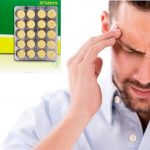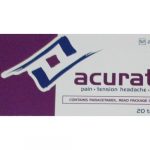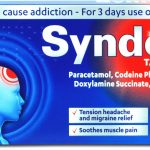Betapyn Tablets: Ingredients, Uses, Dosage, Side Effects, Addiction
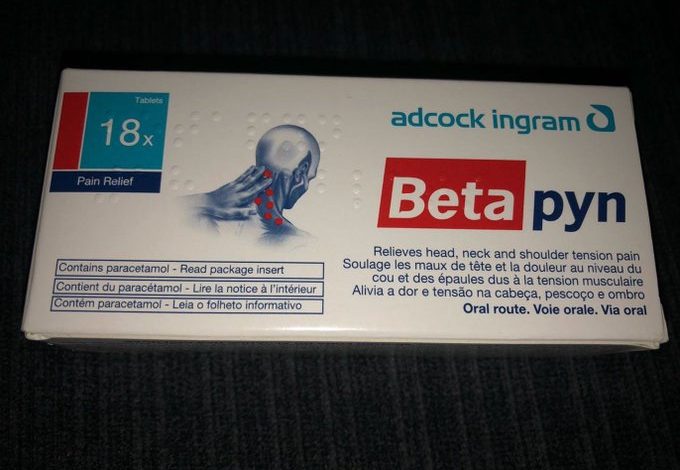
Betapyn Tablet is a South African pain medication used to relieve fever and pains like headaches, period pain, back pain, muscle pain, arthritis, toothache, dental procedures, neuralgia, sore throat, and cold and flu symptoms. It works by blocking the release of certain chemical messengers causing pain, inflammation, and fever. This improves muscle movement and relieves pain and discomfort.
Betapyn Tablets contain four different ingredients; caffeine, codeine phosphate, doxylamine succinate, and paracetamol. The paracetamol acts as an analgesic (painkiller) and an antipyretic (lowers body temperature). Codeine is an analgesic, doxylamine is an antihistamine, and caffeine act as a mild stimulant, this means Betapyn gets to work rapidly.
Each Betapyn tablet contains the following active ingredients; Paracetamol 450mg, Caffeine 50mg, Codeine Phosphate 10mg, and Doxylamine Succinate 5Mg.
What is Betapyn tablet used for?
Betapyn Tablets should be used for the short-term treatment of acute moderate pain, which is not relieved by paracetamol, ibuprofen, or aspirin alone. Short-term use is defined as 3 days.
Betapyn tablets help to quickly and effectively provide pain relief when you need it most.
Can be used for:
• Tension Headache
• Migraines
• Muscular Aches and Pains
• Neuralgia
• Period Pain
• Dental Pain
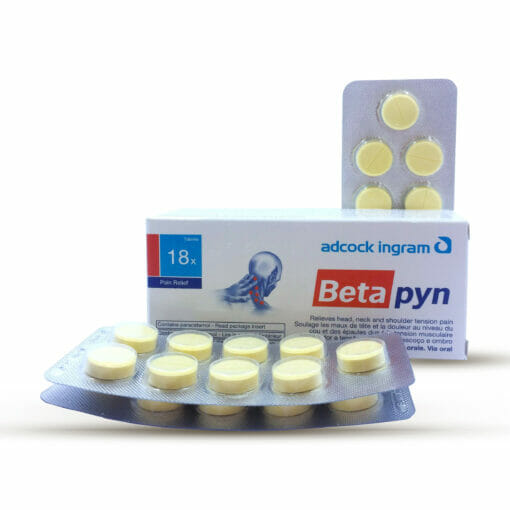
How Betapyn Tablets Work
Betapyn Tablet improves the patient’s condition by performing the following functions:
• Increasing the pain threshold and increases the blood flow across the skin, heat loss, and sweating.
• Antagonizing the adenosine receptors.
• Broken down by the liver into morphine.
• Blocking the effects of the chemical histamine and a few others in the body.
How to take Betapyn tablets
Do not take less than four hours after taking other painkillers.
Adults: One to two tablets every 4 to 6 hours. Do not exceed 8 tablets per day.
Children Aged 12-15 Years: Take 1 tablet every 6 hours, or as needed for relief. Do not exceed 4 tablets in 24 hours.
Caution: This medicine contains codeine which can cause addiction if you take it continuously for more than 3 days. If you take this medication for headaches for more than 3 days, it can make them worse.
What happens if I miss a dose?
Since this medicine is used when needed, you may not be on a dosing schedule. Skip any missed dose if it’s almost time for your next dose. Do not use two doses at one time.
What happens if I overdose?
Seek emergency medical attention or call the Poison Help line at 1-800-222-1222. A codeine overdose can be fatal, especially in a child or other person using the medicine without a prescription. Overdose symptoms may include slow breathing and heart rate, severe drowsiness, muscle weakness, cold and clammy skin, pinpoint pupils, and fainting.
Can a pregnant or breastfeeding woman take Betapyn?
No, Betapyn is not recommended for use during pregnancy. Do not take Betapyn while you are breastfeeding. Codeine and morphine pass into breast milk.
What are the possible side effects of Betapyn?
Stop taking Betapyn and see a doctor straight away if you get any of the following side effects:
• You get swelling of the hands, feet, ankles, lips, or throat which may cause difficulty in swallowing or breathing. You could also notice an itchy, lumpy rash (hives) or nettle rash (urticaria). You may be having an allergic reaction to the medicine.
Tell your doctor straight away if you notice any of the following side effects:
• You have rash, fever, swelling, bruising, or tiredness
• You develop yellowing of the skin or the whites of the eyes
• You have severe abdominal pain which may reach your back. This could be a sign of inflammation of the pancreas (acute pancreatitis)
• You get infections or bruises more easily. This could be because of a blood problem.
• You experience blistering or bleeding of the skin around the lips, eyes, mouth, nose, and genitals. Also flu-like symptoms and fever. This may be something called Stevens-Johnson syndrome.
• You have a severe blistering rash where layers of the skin may peel off to leave large areas of raw-exposed skin over the body. Also a feeling of being generally unwell, fever, chills, and aching muscles. This may be something called ‘Toxic epidermal necrolysis’. Very rare cases of serious skin reactions have been reported.
Tell your doctor or pharmacist if any of the following side effects gets serious or lasts longer than a few days:
• Constipation
• Headache
• Drowsiness, fatigue
• Dizziness
• Restlessness
• Twitching or tightening of muscles
• Difficulty or pain passing urine
• Dry mouth
• Blurred or double vision/visual disturbances
• Ringing in ears (tinnitus)
• Feeling or being sick
• Diarrhoea
• Thick phlegm
• Low blood pressure (causing lightheadedness or fainting when standing up)
• Confusion
• Depression/mood swings
• Difficulty sleeping,
• Shaking/fits
• Irregular heartbeat
• Palpitations
• Stomach pain
• Sweating
• Facial flushing
• General discomfort
• Loss of appetite (anorexia)
• Very slow or shallow breathing, shortness of breath
• Hallucinations, nightmares
• Cramps or stiffness
• Codeine dependence
• Not being able to pass water (urinary retention)
Prolonged use can lead to worsening headaches. If you feel you are reacting badly to this medicine in any way stop taking the tablets and tell your doctor or pharmacist.
This is not a complete list of side effects and others may occur. Call your doctor for medical advice about side effects. You may report side effects to FDA at 1-800-FDA-1088.
How do I know if I’m addicted?
If you take this medicine according to the instructions on the pack, it is unlikely that you will become addicted to the medicine. However, if the following applies to you, it is important that you talk to your doctor:
• You need to take the medicine for longer periods of time.
• You need to take more than the recommended dose.
• When you stop taking the medicine you, still feel very unwell but you feel better.
What medications can interact with Betapyn tablet?
If you use other drugs or over-the-counter products at the same time, the effects of Betapyn Tablet may change. This may increase your risk for side effects or cause your drug not to work properly. Tell your doctor about all the drugs, vitamins, and herbal supplements you are using, so that your doctor can help you prevent or manage drug interactions.
Betapyn Tablet may interact with the following drugs and products:
• Adderall
• Alcohol
• Antianxiety agents
• Anticholinergics
• Antiemetics
• Antihistamines
Betapyn Tablet – Contraindications
Hypersensitivity to Betapyn Tablet is a contraindication. In addition, Betapyn Tablet should not be used if you have the following conditions:
• Acute or severe bronchial asthma
• Alcohol consumption
• Children less than 6 years of age
• Hepatic impairment
• Hypercarbia
• Hypersensitivity


